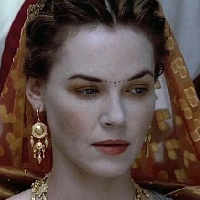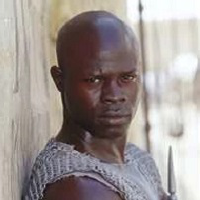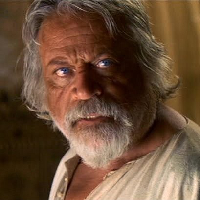Maximus Decimus Meridius MBTI Personality Type
Personality
What personality type is Maximus Decimus Meridius? Maximus Decimus Meridius is an ISTJ personality type in MBTI, 1w2 - so/sx - 162 in Enneagram, RCOAI in Big 5, LSI in Socionics.
Maximus is Si in a Ni world, it is what makes him so valuable. the world of rome is a NI (fe)? world. If you check the page, every "player" is a Ni user: the imperial family is NFJ, the senators are mostly NTJ. The reason why Maximus is sought after is because he has power but isn't "corrupted by Ni: no ambition for himself, no taste for subtle power games. The reason why maximus gets f*ed over and over in the movie is also because he is not good at Ni and Ni users are always several steps ahead of him. Maximus consistently shows a focus on DUTY: meaning he seems to have no will (Ni) for himself. He is merely the vessel of ni users will. First marcus aurelius. Then Lucilla. Everything he does needs to be put in his mouth from the outside, because Maximus consistently needs the help of Ni users to see the bigger picture throughout the film, which makes him look very short sighted and greatly lacking initiative: - at the beginning, he needs Marcus aurelius Ni dom to articulate his thoughts about rome and what they are doing in Germany. - he needs Proximo (Ni inf!) to understand that his Gladiator gig can get him into rome and how to get to it (by being entertaining) - he needs Lucilla and Gracchus (Ni dom) to understand how his status from slave evolved after confronting Commodus His lack of Ni is also the reason why he fails repeatedly in the movie. When given the "succession" by marcus aurelius he goes to... pray. Meanwhile commodus (the real Ni aux) takes every countermeasures needed: securing the doctors, the praetorian. Maximus is just there, without even envisioning what could go wrong. Commodus is one step ahead the whole movie. Maximus only survives because of his fighting ability, his backbone and his military experience (Si). Because what distinguishes Maximus as a man and why he is so respected is his backbone, his solidity and his simplicity (Si) seconded by his team leading ability (Te). He doesn't lead naturally, only when he needs too (Zama battle) or when other call him to, which is a sign of auxiliary Te, instead of dom. He greatly lack ambition because he is very (too) grounded (Si): just want my farm, my wife, my son. when asked by marcus aurelius about his home, he goes on to describe it with great sensory details, valuing every bit of it with some kind of joyful smile (Si-Fi). His plan to retake rome is to rely on the known, his old army instead of the more subtle ni political game of lucilla and gracchus. Maximus consistently shows defiance toward politics, a sign the subtlety of power games and influence are lost to his Ne inferior mind. For his simple, straightforward Si-Te mind, it equals deceit and shenanigans. Too intricate and sophisticated. His method to save rome is to use the tried and true method of the army instead of Lucilla and Gracchus method of furthering the gladiator game. So yeah, a Si god. many other signs indicates that: using a motto (strength and honor or smthg like that), touching the ground before a battle, prayi'g, honoring ancestors, the way he talks about his son (remember to have this position on the horse or smthg like that). Si god.
Biography
A Roman general who Commodus betrayed for refusing to serve him. Commodus also had his family killed, and he ended up sold as a slave. Then Proximo bought him, had him train as a gladiator, and his exploits in the arenas of North Africa brought him to Rome.























